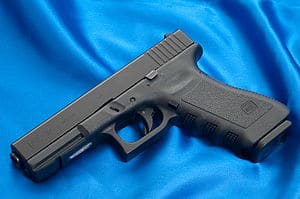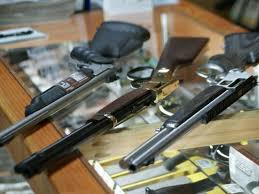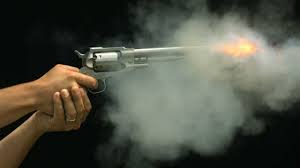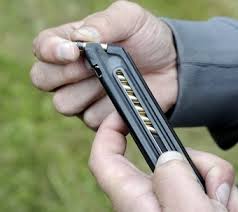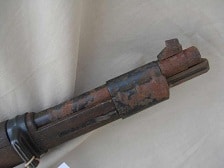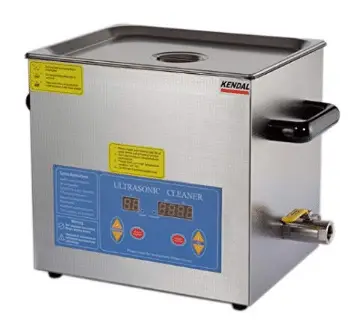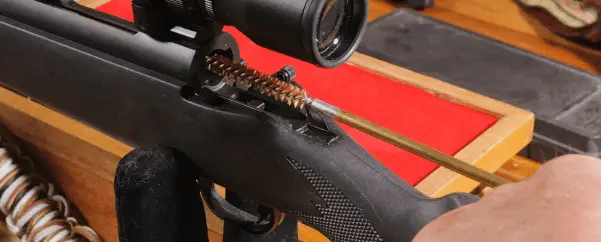
If you are the proud new owner of a firearm, you likely want to do everything in your power to make sure your new gun stays fresh for as long as possible.
Because let’s face it: there’s nothing really like a polished firearm.
That’s why it’s important to understand everything about the gun cleaning process so that you can keep your gun as good as new for years to come.
As it turns out, however, cleaning your gun might not be as simple as you think.
Gun cleaning takes care, and the method and products you use to clean your firearm depend largely on the make and model of your weapon.
Additionally, cleaning your gun the wrong way can actually damage your firearm’s appearance and functionality.
Knowing this, let’s look at a few of the most common questions regarding gun cleaning.
Understanding these questions can go a long way to performing proper and safe gun cleaning.
How Often Should You Clean Your Firearms?
How often you should clean your firearms depends on a variety of factors.
Most importantly, cleaning frequency depends on the model of your firearm, as well as the age and purpose of your weapon.
In general, older weapons or ones that are frequently used in competitions require more consistent cleaning.
Obviously, weapons that are used often are also good candidates for frequent cleaning.
This simply means, if you often go to the shooting range or spend a lot of time using your firearm, you will want to make sure you clean the weapon before it gets too dirty.
To get a better look at it, let’s examine these factors in detail.
Should You Clean Your Gun After Every Use?
While it’s not mandatory, its recommended that you clean your guns after every use.
Even after firing a single shot your gun barrel may get a noticeable amount of gunk and debris left behind.
One of the most important things that determine the frequency of cleaning your gun is the type of ammunition you are using in your firearm.
For the most corrosive priming on your ammo, the iron parts will start to rust as soon as you have completed the firing.
And for this reason, you should consider getting it cleaned for your next best shot.
What Type of Firearms Need Frequent Cleaning?
1- Old Firearms
Let’s start with the obvious. If you have any older guns, you will want to make sure that they are cleaned often.
This is especially true for firearms that take only corrosive ammunition. If left uncleaned, the corrosive residue can actually eat away at the inside of your gun.
In order to prevent this type of rot, you want to clean any corrosive firearms regularly, ideally after each use.
Doing so can help maintain your gun’s lifespan and prevent any dirt-related functionality problems.
2- New Firearms
If your firearm is new and takes store-bought ammunition, you don’t have to worry about this. Though you will still want to clean your gun after every other use, you won’t have to stress over rot or corrosion.
For serious gun collectors, however, it’s crucial that you take the time to remove all damaging materials from your weapon so that it can maintain its long lifespan.
3- Defensive Firearms
You will also want to frequently clean any defensive firearms. This is true even if you don’t regularly shoot them.
As a rule, you should clean a defensive firearm every one to two months. Doing so can help ensure that your gun is ready in case the worst happens.
Why, you may ask?
Simply put, even if you aren’t using your weapon, dirt and another residue can build up on the outside and inside and decrease the functionality of your firearm.
In case of disaster, this is obviously a bad scenario. For smaller, more compact weapons and pistols, this is especially true. It’s easier for smaller guns to get dirty, so you want to make sure you are cleaning them regularly.
4- Sport Pistols and Shotguns
Next, if you are involved in any firearm competitions, you will want to make sure that you keep your weapon up to date and clean.
This is important for your gun’s functionality and your overall competition performance. You don’t want to enter a competition with a dirty firearm.
Because you can bet that your competition won’t.
It’s always important to stay on top of your game so that you do your best and don’t hurt your chances by making any avoidable mistakes.
If you have any other firearm that you use regularly, either through hunting or being at the shooting range, you will want to clean it after every use.
Cleaning regularly-used guns after every use (or every couple of uses) is a good way to keep them fresh and working efficiently.
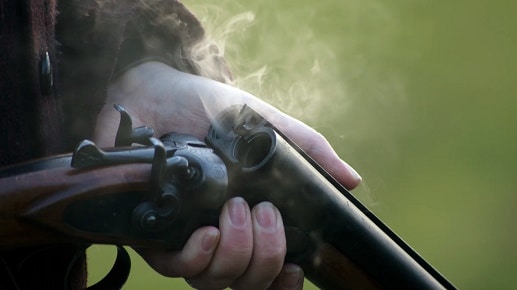
Can You Damage Your Guns by Getting Them Overcleaned?
You may be wondering: “Can I damage my guns if I clean them too much?”
It’s a tricky question. The short answer is No.
Just like washing a car or bicycle, you won’t necessarily damage your gun if you clean it regularly.
Of course, this doesn’t mean that you should sit around and clean your gun every day if you have nothing else to do. It simply means that regular cleaning isn’t awful for your gun.
So why do so many gun owners seem to warn against it?
The answer is simple. It’s just unnecessary. Just as you don’t need to wash your vehicle every day, there’s simply no sense in cleaning your gun all the time.
It can take a while for your gun to build up enough residue to actually warrant cleaning. It may be tempting to keep your gun as fresh as possible at all times, but really, it’s completely unnecessary.
That being said, you shouldn’t have to worry about whether or not you can actually damage your gun by cleaning it.
As long as you are following all the proper cleaning protocols and know what you are doing, your gun’s performance should not be affected in any way.
Following improper cleaning methods, however, can damage your firearm. Some forms of damage take only one cleaning, while others can build up over time.
As such, it’s imperative that you fully understand all proper cleaning protocols before you begin to clean your gun.
Knowing them can help keep your gun functioning and looking well (not to mention keep you and anyone around you safe from harm, as well).
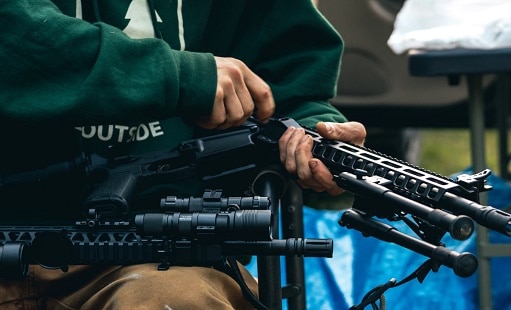
How to Prevent Your Guns from Getting Damaged While Cleaning?
It’s important to exercise great care when cleaning your gun. Depending on the products you use and the amount of skill you have, the gun-cleaning process can be risky.
Let’s take a look at some of the most important considerations you should make in order to not damage your gun:
1- Use the Proper Kit
Investing in the best all in one universal gun cleaning kit can go a long way in helping protect your firearm from unnecessary damage.
Though as humans we have an innate attraction to low prices, this is one time that you don’t want to cut corners.
Buying a cheap gun cleaning kit may seem like a good idea, but in reality, it can do more harm than good.
If you’ve bought one with cheap patches or plastic rods, for instance, you may find that the patches do little to protect your gun from scratches.
Even worse, if you’re using flimsy plastic tools, you might even experience tools breaking off inside your gun—and that’s never fun.
Instead, invest in a high-quality kit that will get the job done. Though they cost more, they can save your guns from unnecessary damage.
Higher-grade tools use nylon or metal, making for a more-effective clean. You do want to be careful that you don’t scratch your gun with these tools, but a good-quality gun cleaning kit should come with protective patches.
You should also be able to avoid small mistakes like this with practice.
Investing in a kit that has a swivel rod is a smart move, as it gives you more flexibility as you clean your gun. By being able to turn the rod, you’re not limited to awkward and potentially-damaging movements.
When cleaning your gun, you want to have as much of a range of motion as possible. Aggressively attempting to clean in one direction can actually scratch the inside of your barrel.
Poor cleaning rods can also damage the muzzles of your guns, so you want to make sure your rod is up to par.
But using the proper tools means more than just investing in better-grade equipment. It’s important that you’re not using anything on your gun that shouldn’t be used.
A common mistake is using WD-40 as a gun lubricant—without knowing that this can actually cause your guns to rust.
2- Use the Proper Solvents
Using improper solvents can be a disaster for your firearm. For starters, using the wrong solvent can ruin the finish on your gun.
This means that that sleek finish you’ve been admiring will be an unsightly mess. That’s obviously not what you want to happen.
That’s why it’s important to check with the manufacturer or with a gun expert before you buy a kit or apply any finish to your weapon.
You want to be sure that you are getting exactly the product you need for your particular firearm. While it’s likely that most universal solvents will work on your weapon, you don’t want to take any risk.
In addition to ruining your finish, some solvents can even melt your gun’s frame. Though it may not happen after one use, consistent use of the wrong solvent can have serious effects on the health of your gun.
If you are having trouble contacting a trusted source about your gun cleaning needs, you can always try a weapon’s shop or speak directly with the manufacturer. Most manufacturers have contact information readily available.
Try not to rely on anonymous online answers (such as Yahoo! Answers), though getting consensus answers on reliable gun forums is likely safe.
Doing this can help prevent the disforming of your gun’s appearance and keep your firearm feeling fresh and sleek.
3- Use the Right Brush
Unless you want to take the surface off your gun, it’s important that you use the right brush. Using overly-aggressive or forceful brushes can facilitate the destruction of your gun’s outside surface.
Much like using the right solvent and oil, it’s crucial that you use the right brush when cleaning your firearm. This will help your gun keep its fine finish and keep you from having to spend extra in gun maintenance.
The type of brush your gun requires depends largely on the model of your firearm. Though it may be hard at first to determine what type of brush your particular firearm warrants, you can rest easy knowing that most gun cleaning kits are organized by type.
Though it’s not a foolproof method, you should be able to get a general idea of the type of brush you need simply by looking at kits that are geared toward your model of firearm.
In general, more expensive brushes work better for your firearm. Though they require a more significant upfront payment, they are worth the investment for anyone looking to maintain perfect gun aesthetics and functionality.
If you suspect that your current brush is causing damage to your gun’s surface, you may want to ask a trusted source or simply try out a brush that’s either more geared toward your firearm or more expensive.
Doing so could pay huge dividends to your gun’s maintenance and visual health.
How long can a gun go without cleaning?
Its always good to clean your guns after shooting. However, it’s not essential that you clean them as soon as you are back home after shooting. In general cleaning it within a week time will be fine. Do not try to hold more than that as it may cause corrosion based on the type of ammo you used for firing.
How often should I clean my gun if I don't use it?
I usually field strip and lightly dry wipe my shotgun once in every three months, even when I have not used them for firing. You would be fine if you do it in six months or maximum 1 year. As a thumb rule you should always clean and oil your guns at least once in a year if you haven’t used them.
After how many rounds should you clean your gun?
Most of the modern firearms built today need to be cleaned after every 1,000-3,000 rounds. On the higher end of spectrum, it may go to 5,000 rounds. However, I usually prefer to clean my shotgun and SIG after every trip to the range (within a week time), regardless of how many rounds I have completed on the day.
The Bottom Line
Here’s the bottom line: cleaning your gun takes care, and there are several important factors you should take into consideration when attempting to clean your firearm.
To begin with, you should know that depending on what type of weapon you are using, the frequency at which you clean your firearm changes.
Making sure that you are cleaning your gun at the proper frequency is crucial to maintaining its overall visual appeal and functionality. This is especially true for weapons that are frequently used.
Furthermore, you should understand the proper cleaning methods when it comes to cleaning your gun. Though it may seem easy, cleaning a gun isn’t as simple as some would have you believe.
It takes care and practice, as mistakes could end up costing you your weapon. You want to be careful not to do anything to cause any damage. This includes buying the wrong cleaning kit or materials.
Overall, however, if you follow the guidelines here, you should be good to go. Understanding the information provided here gets you one step closer to keeping your firearm perfect—even years down the road.

